
Illustrations By Jazzmyn Coker
My name is Karī and I am a writer and a storyteller. As a Pollenite, I’m interested in telling stories that illuminate our differences with beauty and grace and show our dissimilarities as a way to build connections. This column is an opportunity to tell you about who I am, while exploring race and identity in America and beyond from a cross cultural perspective.
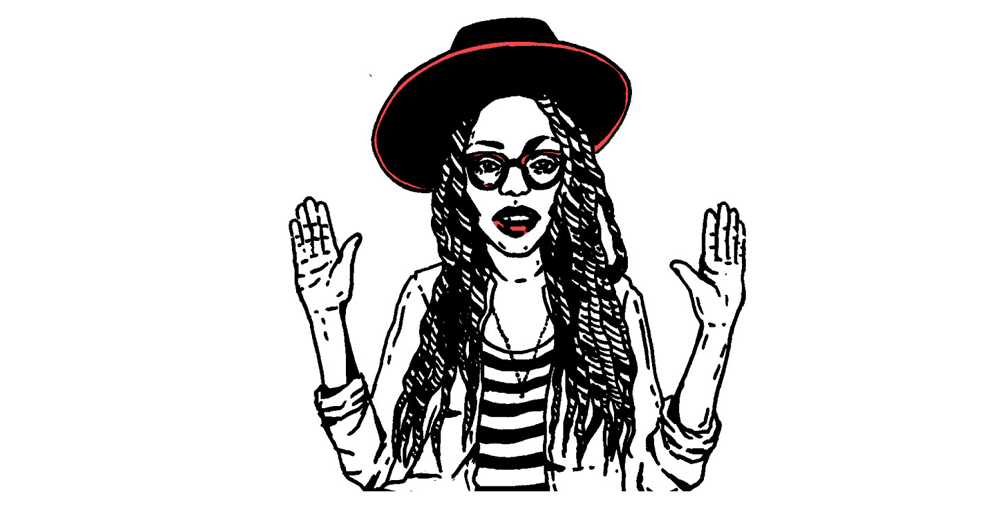
Things Have Changed, But They Haven’t
That our births should be so private and our deaths so public is the cruel reality of being Black in America. It makes you want to call in sick some days. To pick up the phone and say that the footage of another bloody Black body was too much for you this morning. That you are anything but “okay” because you cannot be okay. It makes your breath catch in your chest and remember how Eric Garner couldn’t breathe; how Tamir Rice never had a chance to speak; how Sandra Bland spoke too much.
August 2014: ‘It Stops Today!’
“I’m tired of it. It stops today!” Eric Garner during his July 17 arrest.
How could he have known and what did it feel like when those words left his mouth to be placed in the space between two races? I get weary of the fight too. Were you weary Eric? Had you had enough?
When is enough?
“I can’t breathe. I can’t breathe. I can’t breathe.”

Sep 22, 2014: ‘Things Have Changed, But They Haven’t’
It is July 2014 as I stand on a dirt road in Greenwood, Mississippi, surrounded by crumbling houses and the starkest poverty I have witnessed in my years in this country. I am here with a group of other oral historians exploring the oral history of Southern food. There is a black president in the Oval Office and the promise of progression in the air. Michael Brown is still alive. My world of Black and Brown faces is yet to forcefully erupt in defiance, stating the painfully obvious for the umpteenth time in American history: black lives matter.
Standing on the porch of Sylvester’s small store I ask him, “Why do you stay?” When there is so much more of this country in which you can make yourself, I leave unsaid.
“I want the world to know about this place,” he tells me.
We left Sylvester in Greenwood. Driving across the Tallahatchie River and past the Mississippi Delta’s unending fields of cotton, we had made one more stop before returning to the Ole Mississippi campus.
Our van pulled up to the now broken remains of the store where Emmett Till, at age 14, had allegedly flirted with a white woman in August of 1955, leading to his brutal murder later that evening and igniting the spark for the civil rights movement. The Tallahatchie River we had just crossed was where Till’s body was found three days later.
This would be my last evening in the Deep South. Three and a half weeks later, on another August day, 18-year-old Michael Brown would be dead on a sidewalk in Ferguson and Sylvester’s words would come ringing in my ears, “Things have changed, but they haven’t.”
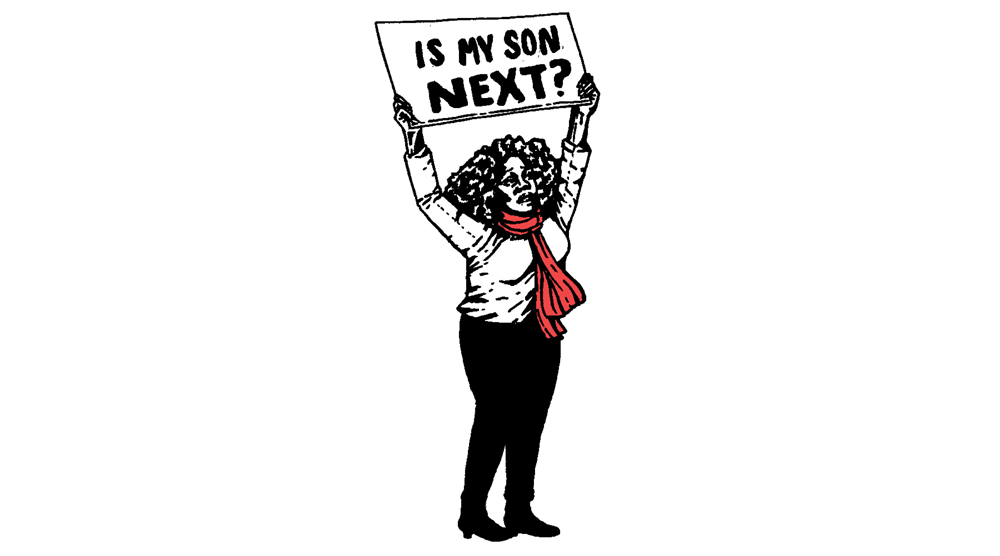
December 2014: After Ferguson
My black skin costs less than yours the world tells me though I know it untrue, and for that, I am an angry, black woman.
But there is no space for black rage.
“Look at them riot!”
“Why would they do that to their communities?”
“What does this do for their cause?”
“He was a criminal anyway.”
“A riot is the language of the unheard.” –Martin Luther King
“All lives matter.”
“You cannot tell an oppressed people how to be oppressed!”
Black rage is told in statistics over damage to property, arrests, police response, fires, looting, and skirmishes with the police because there is no space for Black expression.
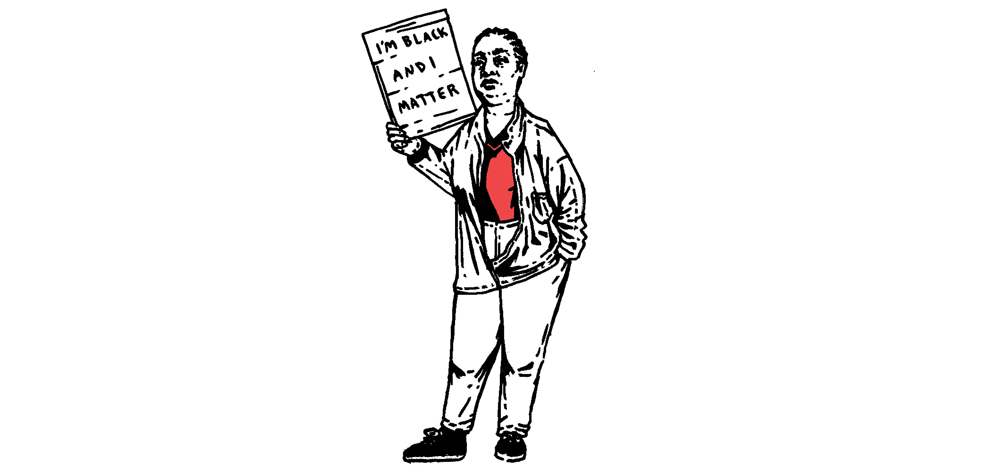
May 1, 2015: When is the Tipping Point on Racialized Violence?
In the recitation of America’s old traumas we are stretching towards a new tipping point on how we as a society will behave towards Black America. As the bodies drop, one after another from seemingly every corner of this country, there is a loud drumming that refuses to grow silent. The question is not a matter of ‘if’ this will force a new cognizance of the remaining vestiges of racial violence in America, but instead ‘when.’
September 18, 2015: ‘A Circle of Blood’ on Art in Times of Unspeakable Violence
“If empathy is to maintain its value as a necessity in being human, then we must insist on its global application in all cases of violence.”
-Jack Whitten

Feb 9, 2016: ‘My Demons Won Today’
MarShawn McCarell, age 23, shot himself on the steps of the Ohio State Capitol last night. He was a young Black man, Black Lives Matter organizer, and a promising young leader who said heaven wasn’t worth waiting for if it meant living in hell.
McCarell’s Twitter page from Feb 8: https://twitter.com/MC_CARREL11
Let the record show that I pissed on the state house before i left.
— SPICY (@MC_CARREL11) February 8, 2016
March 30, 2016: No Indictment for Fatal Shooting of Jamar Clark
Your heart, it sits there in disbelief over things it should have learned to believe by now.
April 9, 2016: Sixty-One Seconds
But beyond sentimentalities…I want you to think about this: Sixty-one seconds. One minute and a second—that’s how long it took for Jamar Clark to end up with a bullet in his head after Officers Dustin Schwarze and Mark Riggenberg arrived on the scene on November 15, 2015.
In those 61 seconds, Jamar Clark saw a police officer pull a gun out of his holster as he approached him, to which Jamar asked, “what’s the pistol for?” [page 17: Ringgenberg produces his firearm] Other accounts in the report say, “Why do you have your gun out?” But the point is Jamar Clark was clearly surprised to have a gun pointed at him. Officer Riggenberg put his gun back in his holster, but a few seconds after, he threw Jamar violently onto the ground in a chokehold for refusing to take his hands out of his pockets. After being thrown to the ground in a failed and violent chokehold by an officer who had approached him with his weapon out, Jamar Clark is struggling with officer Riggengberg when a second officer puts a gun to his mouth. That was Officer Dustin Schwarze. A few seconds later Jamar heard or saw a bullet tear through his head bypassing his left eye. One day later, Jamar Clark would be pronounced dead.
Sixty-one. Can you imagine how quickly things escalated for Jamar Clark on that evening, on that sidewalk? How scared he must have been.
Photo from Government Center protests taken by me: ‘We Charge Murder’
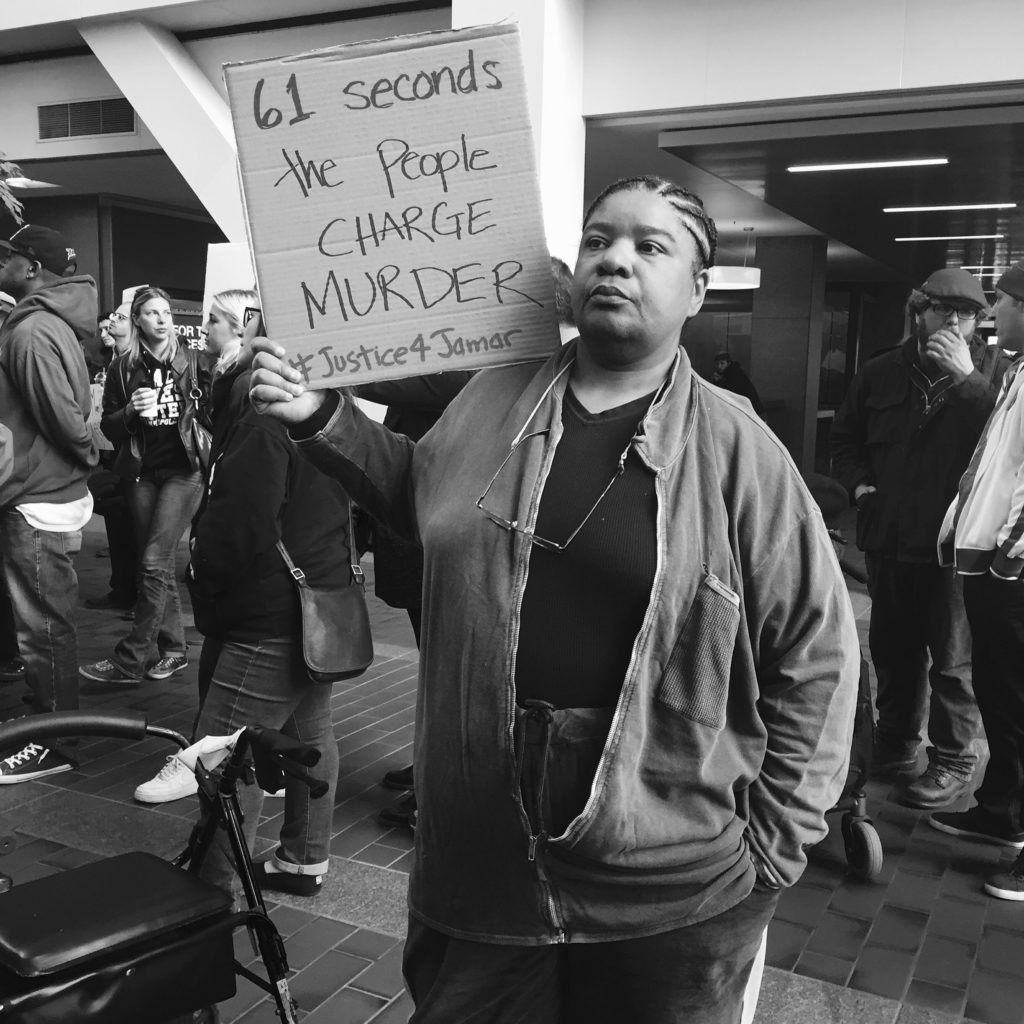
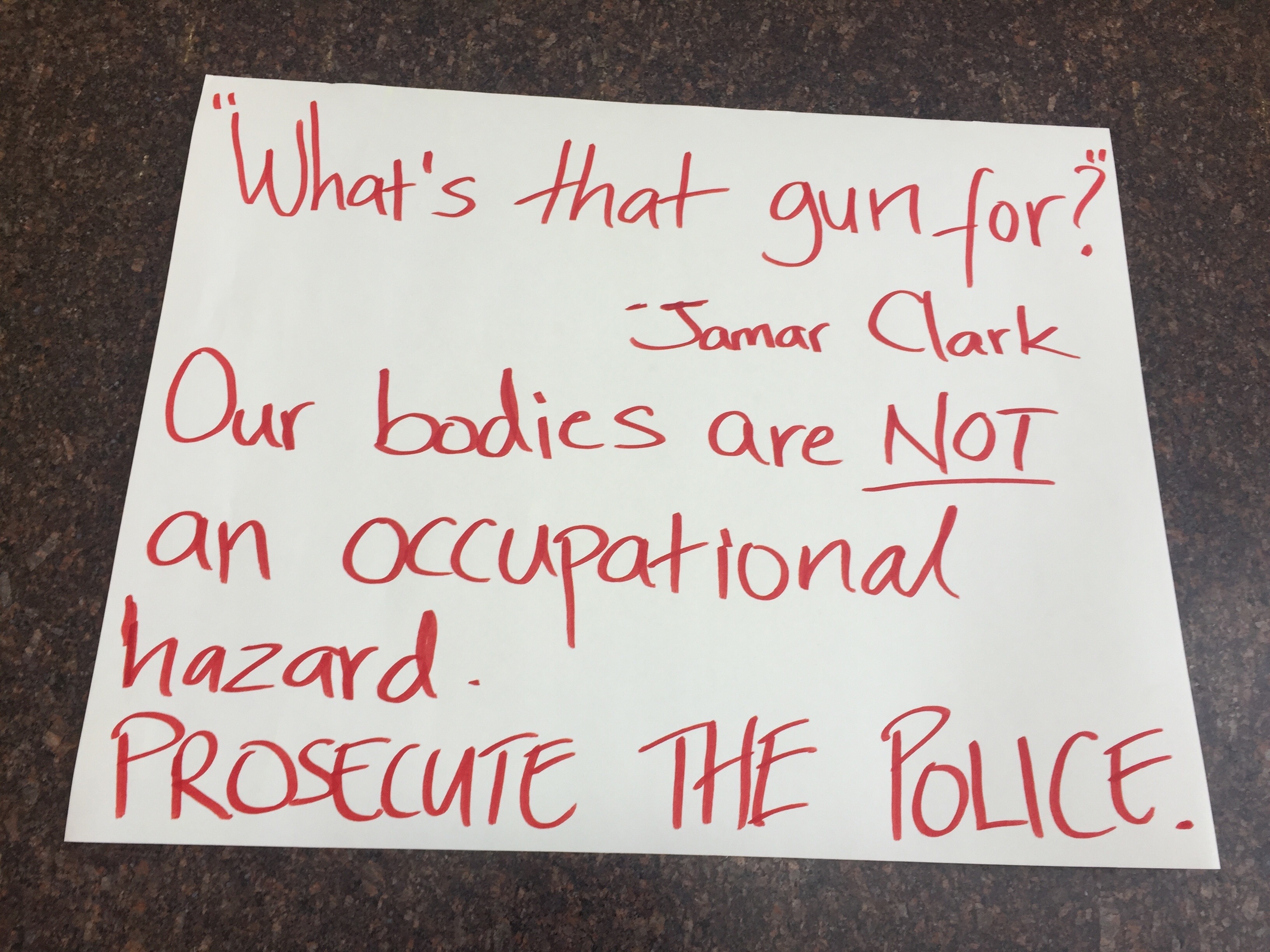
July 7, 2016: Alton Sterling and Philando Castille Fatally Shot by Police
The unbearable weight of being Black in America, of constant mourning. It is a great feat, I have thought often, that the soils of America have not turned red yet like the Kenyan hillsides of my childhood. Red for all the bloodshed and systemic murder. Red for the genocide of the Native American tribes that preceded our erasure. Now, perhaps, the cold grey concrete and blacktop makes it easier. A simple hose to erase the murders of unarmed Black men, women, and children.
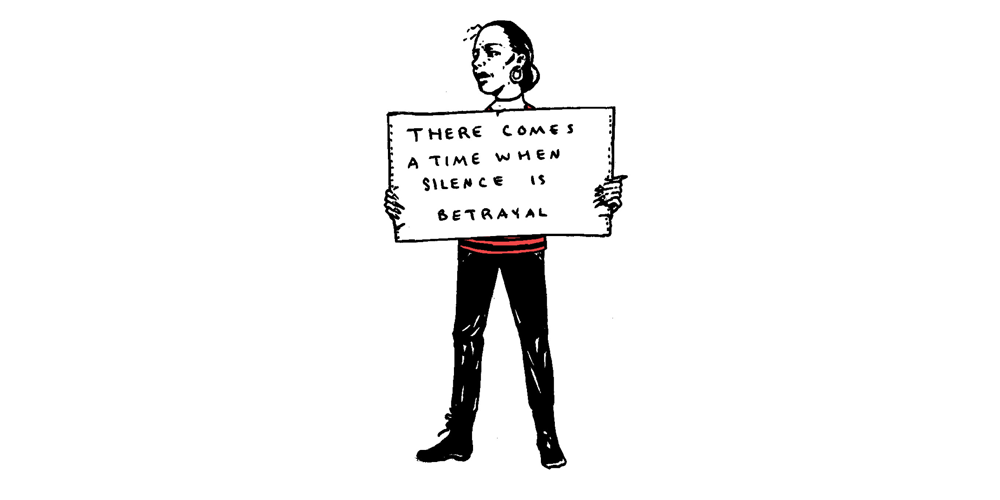
September 20, 2016: Thirteen year-old Tyre King Fatally Shot by Columbus Police
“If I was to die today, I’ve had a chance to live life… I’ve made memories, I’ve been in love, I’ve known what it feels like to have small successes. Traveled a little bit. Thirteen, I didn’t know shit. I didn’t experience anything, I didn’t get out of my neighborhood which was in the inner city. I hadn’t had a chance to make my mistakes and learn from them.”
October 3, 2016: Eighteen year-old Carnell Snell Fatally Shot by Los Angeles Police
The names come so fast that they are are becoming a blur. Alfred Olango was only last week. I wonder if we’ll get a new name every week until something breaks, because we have broken already. The only thing left to break is your system, your minds, your callousness, your racism, your prejudice, your oppression but mostly your fear. Your fear that perhaps we are inherently more powerful—and have always been.

______
I want to be sure though, that you understand that Black America’s period of mourning precedes Michael Brown or even Trayvon Martin (whose hoodie still hangs in our closets). It is a centuries old mourning that in this era began with our beloved Emmett Till and the courage of a mother who would not let his death be a secret. It is a grief that turns a young Black boy’s 10th birthday into a cause of celebration—because he is alive unlike many others.
https://twitter.com/FeministaJones/status/783529863819001856
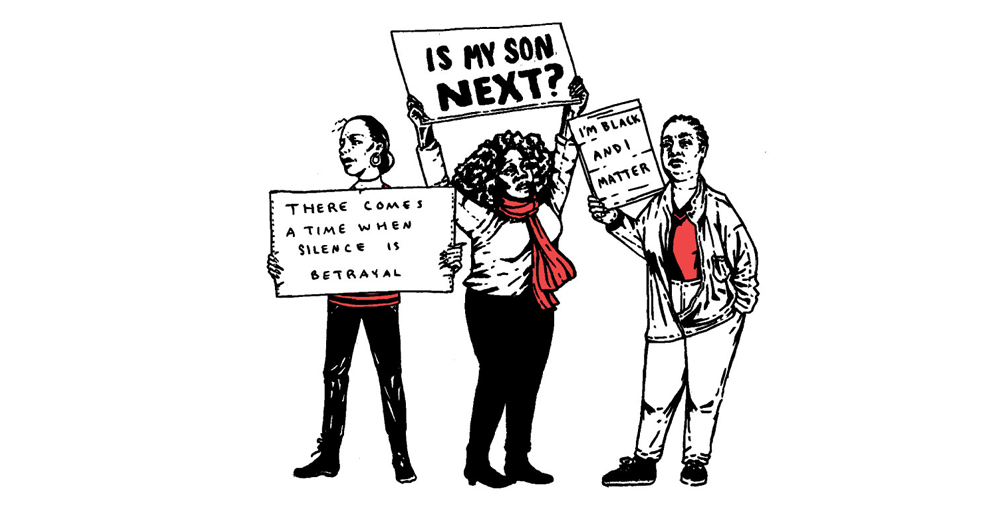
And he’s 10
He made it to 10
Some mothers can’t say that
Esp mothers of Black children in America
— District 11 Tribute (@FeministaJones) October 5, 2016
This is the second in a series of essays by Karī Mugo for Pollen. You can read the first here. Karī is a 2016 Jerome Foundation Travel and Study Artist, former and current contributor to various outlets in the U.S., and a freelance writer and performer. Her words mainly live on the internet and have also appeared on the radio, and on stage.